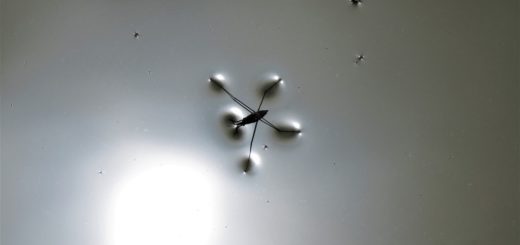Legitimizing North Korea
 The world is breathless. Donald Trump’s fan club is preparing its Nobel Peace Prize party. Moon Jae-in is smiling like a man who just secured his place in Korean history. And Kim Jong-un, the enigma at the center of this show, is shaking hands with everyone, promising to end the Korean War. It’s all a dream come true — but for whom?
The world is breathless. Donald Trump’s fan club is preparing its Nobel Peace Prize party. Moon Jae-in is smiling like a man who just secured his place in Korean history. And Kim Jong-un, the enigma at the center of this show, is shaking hands with everyone, promising to end the Korean War. It’s all a dream come true — but for whom?
To state this another way, what has gotten into Kim, a man who over the past six years has torpedoed a South Korean navy ship, shelled an inhabited South Korean island, conducted repeated nuclear weapons and missile tests, including firing missiles right over Japanese territory, threatened to nuke Guam, assassinated members of his own inner circle, and of course continued his family’s multi-generational personality cult gulag regime? Why is he suddenly — specifically, since just before the recent winter Olympics in Pyeongchang — playing so nice, acting like a man who wonders why we can’t all just get along?
I know what Trump’s idolaters will answer, because it’s the same answer they give for everything that seems like good news of any kind, much as North Koreans are trained to believe that every orange peel they are allowed to share with their family is a bounty for which all thanks and praise must go to the Dear Leader. But for the rational among us, witnessing this global gasp at the wonderful and unpredicted change of tone from the Kim regime with our thinking caps on, rather than propeller caps, I think there might be some benefit in a little stocktaking.
To begin with the obvious question: What is Kim’s purpose here? One doesn’t initiate a radical change in policy without any cause or intention. So what is he up to?
Here, for the sake of clarity, are five possible answers that immediately strike me as either plausible or at least likely to have some adherents:
1. Kim, as some recent reports have claimed, is in poor health — he sure doesn’t look particularly well — and is suddenly feeling some urgency about establishing a legacy (insecurity about not being up to inheriting the regime so young has clearly been one of his motives from the outset of his reign), with no heir anywhere close to ready. This new posture is his hope of securing positive protection from the international community against potential internal threats to his rule; if he is regarded as the world’s safest bet for a denuclearized North Korea, then he might imagine the UN would save him from a coup attempt during a period of debilitating illness.
2. Kim never wanted to be a dictator in the first place, hates the role, and is sincerely hoping to divest himself of authority in favor of evolving toward the ROK’s long dreamed-of democratic reunification.
3. The regime’s frantic effort to perfect its nuclear weapons was precisely what it always seemed to be: not a serious attempt to challenge the United States head-to-head, but the ultimate bargaining chip or leverage for gaining assurances of acceptance and protection from the UN, perhaps even including the prestige of being allowed a turn on the Security Council. (A joint Nobel Peace Prize would virtually guarantee that eventuality, not to mention an end to sanctions.)
4. Kim is so frightened of the personal Twitter power of Donald Trump that he is prepared to relinquish his family’s nuclear achievements and therefore his future ability to threaten his neighbors, in a timid submission to Trump’s alpha male bravado.
5. Kim has been ordered by China to cut out the nonsense or be abandoned, because China has its own plans for the region and the world, including an eventual conflict with the U.S. — plans that could be severely complicated by Kim’s further provocations. (Xi Jinping was just declared dictator for life and is currently reasserting the Communist Party’s grip over all social and private life, in preparation for the intended re-imposition of strict communist rule. In other words, China has long-term plans, which means they have strategic intentions regarding Korea, and a loose cannon North Korean regime would threaten to muck up the whole thing.)
Some variation on one of the above options, or perhaps a combination of two or three of them, would seem to be the likeliest explanation for Kim’s new shtick. If I had to guess, I would pick the combination of numbers three and five, with a dash of number four thrown in — after all, personality cult leaders, being inherently vain men, are likely to be suckers for one another’s baloney, much as Hitler admired Mussolini, or as Trump admires Putin, Erdogan, and Kim.
That being said, there is another question involved here, which no one seems to be interested in discussing, though it would have seemed the most obvious thing in the world just a few short years ago — another typical example of “the Trump effect,” I suppose — namely: Why is the world suddenly so sanguine about granting permanent security to the Kim dynasty on their terms? Isn’t that exactly what everyone used to say the West could never allow, and that others used to warn would be the great risk of permitting North Korea to complete its nuclear development, which they now claim, with some plausibility, to have done?
In other words, all this new neoconservative-style naiveté and cheerleading for and/or from the Trump administration notwithstanding, here is what I am seeing so far in this beautiful rapprochement:
North Korea has suddenly achieved a significant level of international prestige and legitimacy outside of the communist world — precisely what people used to think should never be allowed to happen, and what conservatives condemned Madeleine Albright for seeking to grant Kim Jong-il during the Clinton years. From Trump praising Kim Jong-un as “an honorable man” and a future “great friend,” and elevating him to equal footing with the civilized world through his childish Twitter wars, to Kim’s recent photo op world tour — from Kim holding hands with Xi in China, to Kim holding hands triumphantly with Moon Jae-in at the DMZ, to the upcoming ultimate coup, a summit meeting with the U.S. President at a neutral location (or perhaps even on his own turf) — this grotesque little prison camp operator, sex-slave owner, and murderer of his own family members, is now being talked about as a potential Nobel Prize winner.
How is this a win for the rest of the world, unless we’ve all joined the moral equivalency, “give peace a chance” brigade, where avoiding nuclear war is the only or overriding goal of global politics? Isn’t this exactly what people feared in the early stages of the Kim family’s nuclear program? — not that North Korea would become a threat to the U.S., but that nukes would force the world to the bargaining table with pure evil.
Before North Korea had nuclear weapons, no one in the semi-free world thought it was acceptable for the North to exist in perpetuity as the world’s most twisted, brutal starvation and brainwashing regime. Now, thanks to past unwillingness or inability to deal with the danger, Kim Jong-un has pushed the world just close enough to a realistic fear of nuclear explosions that everyone is leaping at the chance to grant this communist dictator legitimacy, praise, good faith, and his long-desired nonaggression pact. But to sign a nonaggression pact with a totalitarian tyrant — a promise never to do anything to undermine his regime’s survival — is to consign his victimized population to assured lifetime enslavement, without even a glimmer of hope from beyond the borders to keep their dimming spirits alive.
It is not that the U.S. ought to be obliged to overthrow illegitimate regimes around the world, but rather that the oppressed and imprisoned — and North Korea is a prison state — derive some measure of hope merely from knowing that the vague, obscure fantasy picture that fills the category “the rest of the world” in their minds has not completely forgotten or forsaken them.
Watching Moon Jae-in grinning from ear to ear and clinking glasses with Mr. and Mrs. Kim — Moon has long been a “sunshine policy” advocate, i.e., an Obama-style progressive with spiritual sympathies to the North — leaves me wondering whether the South, along with the U.S. and the rest of the non-totalitarian world, is about to close the door on those millions of prisoners, in the name of securing “peace in our time.” (And yes, as a resident of Korea, I have an obvious vested interest in peace on the peninsula.)



